Home » Cardiology Services
Leading Cardiology Services in Los Angeles
Looking for cardiology services in Burbank, Los Angeles? Our expert doctors offer echocardiogram tests, holter monitor test, cardiac & diagnostic testing, and online consultations for heart health in Los Angeles, and Burbank. Renowned as a leading online cardiologist consultation and heart specialist doctor in Los Angeles, Dr. Cynthia Thaik and her team offer an extensive range of cardiology services. Our comprehensive offerings include online cardiologist consultation, advanced diagnostic cardiovascular testing, therapeutic interventions, echocardiogram testing, holter monitor testing, cardiac testing, and proactive preventative care. Please refer to the list below for details on our state-of-the-art diagnostic tools.
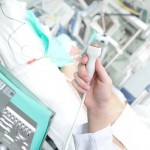
Echocardiogram Testing
An echocardiogram test uses high-frequency sound waves, or ultrasound, to picture or visualize the heart chambers, the thickness of the muscle wall, the heart valves, and major blood vessels located near the heart. This is a noninvasive test that can diagnose heart failure, changes from hypertension, murmurs, and causes of shortness of breath or chest pain. The study takes about 20 minutes to perform. Any clothing may be worn and there is no restriction on diet before the test. Book An online cardiologist consultation for an echocardiogram test in Los Angeles, Burbank. Learn more about echocardiogram testing and diagnostic cardiovascular testing.
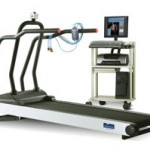
Stress Echocardiogram Test
A stress echocardiogram test combines a treadmill stress test with an echocardiogram to increase the diagnostic yield of detecting coronary artery disease. Baseline ultrasound images are taken followed by the patient exercising on the treadmill. Immediately after the treadmill portion is over, post exercise images are obtained. Dr. Cynthia assess all the data and interprets the findings. Preparations involve not eating or drinking for three hours prior to the procedure, stopping specific heart medications (beta blockers, certain calcium channel blockers, digoxin) prior to the test, wearing comfortable clothing and shoes that are suitable for exercise. A patient should allow 1 1/2 to 2 hours for the entire test, including the preparation, echo imaging and stress test. Book An appointment for a stress echocardiogram test in Los Angeles, Burbank. Learn more about stress echocardiography tests from cardiac doctors in Burbank.
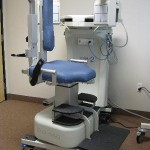
Cardiac Nuclear Imaging Test
This testing is offered to patients who are unable to participate in a standard treadmill exercise test, because of disability or infirmity. The patient receives a very small amount of a radioactive isotope through injection. This isotope travels to the heart and into the cardiac muscle through the coronary arteries. The entire testing process is roughly four hours, during which time a special “gamma” camera is used to pick up the glow from the isotope and can help to identify a lack of blood flow to the heart. This isotope is eliminated from the body within approximately 12 hours and is as safe as a standard x-ray. Preparations involve no eating or drinking after 12 pm the night before the test. Regular medication, including blood pressure medications, should be taken. Diabetics should not take their insulin or oral medication but should bring the medicines with them. Book An online cardiologist consultation with a cardiovascular doctor for a cardiac nuclear imaging Test in Los Angeles, Burbank. Learn more about cardiac nuclear medicine.
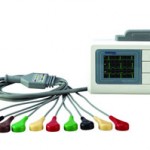
Holter Monitor Test
Holter monitoring test is employed to assess how the heart responds to regular activities and to identify any correlation between symptoms (such as palpitations, dizziness, fainting) and abnormalities in heart rhythm. The results may reveal various arrhythmias. This monitoring device continuously records heart rhythm during everyday activities and is typically worn for a 24-hour period. Five small pads (electrodes) attached to the chest capture electrical signals from the heart. Throughout this period, patients maintain a diary, documenting all activities and noting any symptoms experienced.
Once the Holter monitor is removed, the recorded data is analyzed, generating a comprehensive report on the heart’s activity. This report correlates irregular heart activity with specific activities or times. The test requires no special preparation, although it is advisable to avoid showering or bathing just before the examination as the device cannot be immersed in water. Book An appointment with a heart specialist doctor for a Holter monitor test in the heart clinic in Los Angeles, Burbank. For further insights into the Holter monitor, please explore additional information.
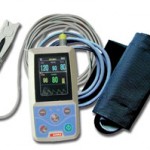
Ambulatory Blood Pressure Monitoring: Gaining Insight for Hypertension Management
Understanding the root cause of hypertension is a crucial step towards effective treatment, and Ambulatory Blood Pressure Monitoring (ABPM) proves instrumental in this regard. ABPM involves taking multiple blood pressure readings over a 24-hour period or longer, offering precise and reliable information that provides a more accurate depiction of your blood pressure profile compared to readings taken during routine office visits.
During ABPM, a blood pressure cuff, similar to those used in a physician’s office, is worn around the arm for the entire 24-hour duration. This cuff is connected to a unit approximately the size of a small hand-held cassette player, which is secured around the waist. Once the monitoring period concludes, the unit’s data is downloaded to the computers in our office and meticulously reviewed by Dr. Cynthia Thaik.
This approach ensures that you and your healthcare provider gain a comprehensive understanding of your blood pressure patterns, allowing for a more nuanced and tailored approach to hypertension management. Book An appointment with a heart specialist doctor for an ambulatory blood pressure monitoring test in the heart clinic in Los Angeles, Burbank. To explore further details about the benefits and insights offered by ambulatory blood pressure monitoring, delve into additional information.
Cardiac Event Monitoring Test: A Comprehensive Overview
Cardiac Event Monitoring Test is another form of ambulatory EKG monitoring tesy that offers distinct advantages over the Holter monitor test. This type of monitoring allows for a more extended observation period, increasing the likelihood of capturing infrequent abnormal heart rhythms. There are two primary types of cardiac event monitors: Pre-symptom and Post-symptom.
Pre-symptom Event Monitor (Loop Recorder):
A Pre-symptom monitor, also known as a loop recorder, is a compact device affixed to the chest with electrodes, continuously recording heartbeats. When symptoms occur, the patient can press a button on the monitor to create a permanent recording of the heart rhythm. Notably, this monitor retains a small amount of information about the heart’s activity leading up to the button press (pre-symptom recording). This feature proves particularly valuable for individuals who experience heart issues leading to fainting, allowing them to press the button after regaining consciousness.
Post-symptom Event Monitor:
The Post-symptom event monitor is a small device exclusively used when symptoms are present. Unlike the Pre-symptom monitor, it does not require electrodes attached to the chest but relies on direct skin contact to record the heart rhythm.
These cardiac event monitors offer a more prolonged and targeted approach to EKG monitoring, making them effective tools for capturing irregular heart rhythms that may occur sporadically. To delve deeper into the intricacies of cardiac event monitors, discover more about their applications and benefits. Book An online cardiologist consultation with a cardiovascular doctor for a cardiac event monitoring test in Los Angeles, Burbank.
Life is a gift, and good health and a good heart should be our most prized possessions – Dr. Cynthia
